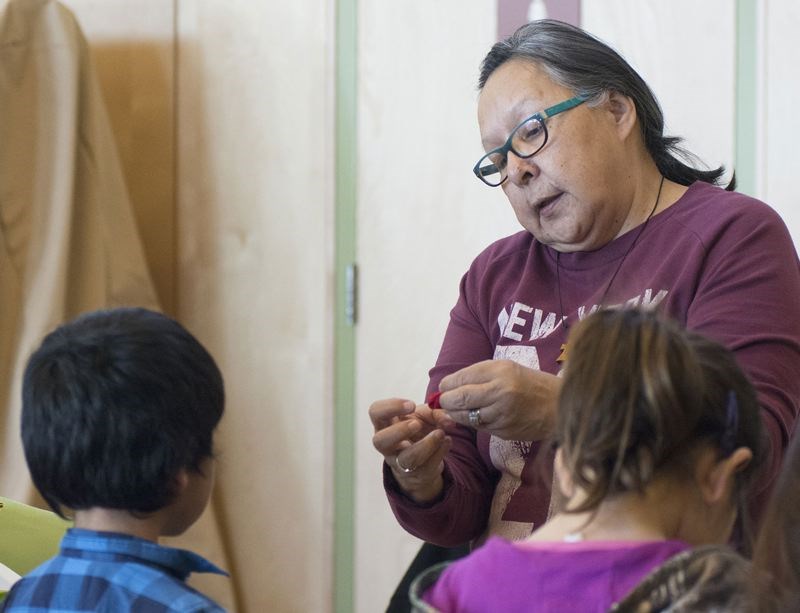As a teenager Jenny Martin spent hours transcribing the words Nak'azdli elders spoke into old tapes, picking out bits of tradition in pieces of their past as she archived memories.
"That was probably the best job I ever had because I learned so many stories from our precious elders," said Martin, now health director at the Nak'azdli Health Centre. "That has always been a passion for me."
Some 20 year later the community, near Fort St. James, is embarking on a digital storytelling project, in partnership with Shannon Freeman, a social gerontologist and assistant professor at the University of Northern British Columbia.
"We were losing so much elders at a fast rate," said Martin. This year the health centre surveyed local elders and found sharing cultural knowledge and traditions was a priority. "We are scared of losing our language and our culture."
With a $25,000 grant from AGE-WELL, which supports technologies and services that benefit older adults and caregivers, a "highly collaborative transdisciplinary team" will pair elders and students at Nak'albun Elementary School as a way to preserve culture and create a mutually beneficial environment where both are learning. The children will likely be the technology experts, while the elders will share wisdom, said Freeman.
The pilot workshop will run over several weeks in the spring, with the goal of creating and recording 20 stories using WeVideo software.
Engaging elders is one way to combat social isolation, especially necessary in rural communities.
"One of the important things with aging and health is meaningful engagement," said Freeman.
"This kind of project is one way to start building linkages and engaging elders - so not only to preserve the stories and the culture and the wisdom but also to share it and engage them in ways with young people that can be fun and purposeful activity."
Freeman called it the "perfect project" and one that can build off of an existing model of digital storytelling with seniors at Simon Fraser University.
"(Participants) are telling us about the social benefits and the emotional benefits and the cognitive benefits," said SFU education professor David Kaufman, who led that work and will also be involved in the Nak'azdli workshops. Older adults responded to an informal and collaborative social learning environment.
The intergenerational component, which both Freeman and Martin highlighted, is unique to this new study.
Kaufman said he hopes it can help combat agism and offer new connections that will have offshoot health benefits to seniors.
"We need to do something to bring older adults back into social networks of different kinds and then that's related to the idea: if you don't use your brain, and you don't continue lifelong learning or doing something that's cognitively stimulating, you're going to have cognitive decline," he said.
Stories are powerful cultural tools and traditional ways to share knowledge, Kaufman wrote in a 2016 paper reflecting on the impact of SFU's workshops.
"They serve as one of our main tools of identity, in that we perceive our lives as embedded in narratives and our memories are wrapped around these stories," he wrote, adding later by phone that having young people capture their cultural legacy is a key component. The approach will be community-driven, engaging the elders to direct what kind of stories they want to tell.
"Some of them will be cultural legacy stories, but it may be that the youth have a question: they want to know the meaning of a word or the story behind an important place in their community and they decide to tell the story of that place or the elder might have a cultural story or a knowledge story or an experience story," said Freeman.
Many are scared the potlatch system will be forgotten, said Martin, so she's sure at least one story will record that tradition.
"When somebody passes away in Nak'azdli, the younger people we don't know what to do and we always go to our elders for advice and they help us out," Martin said.
"Nothing is written, it's all just verbal right now."
Martin said she most looks forward to building bonds between youth and elders.
"The end point is to really create opportunity for cultural legacy and for preserving of the stories and creating of intergenerational relationships," added Freeman.



